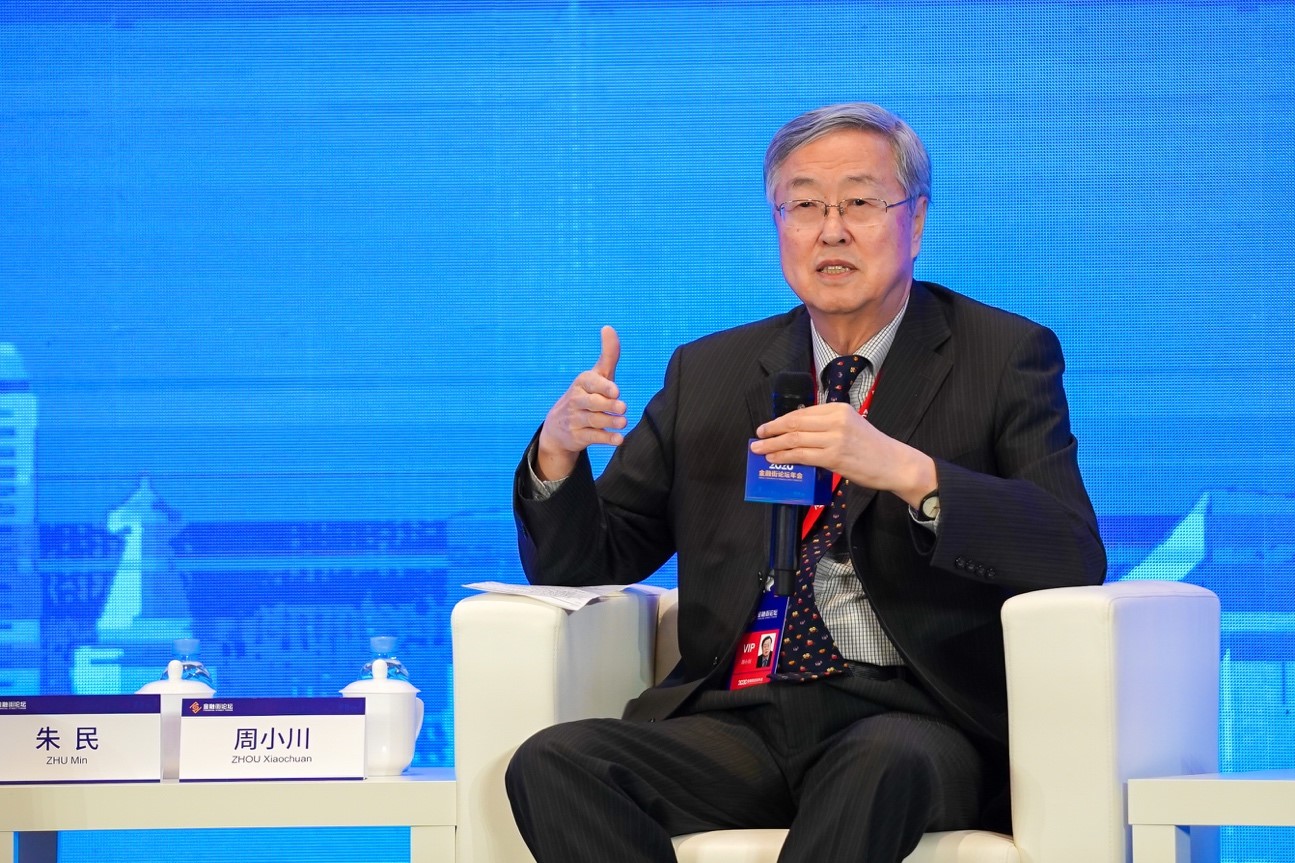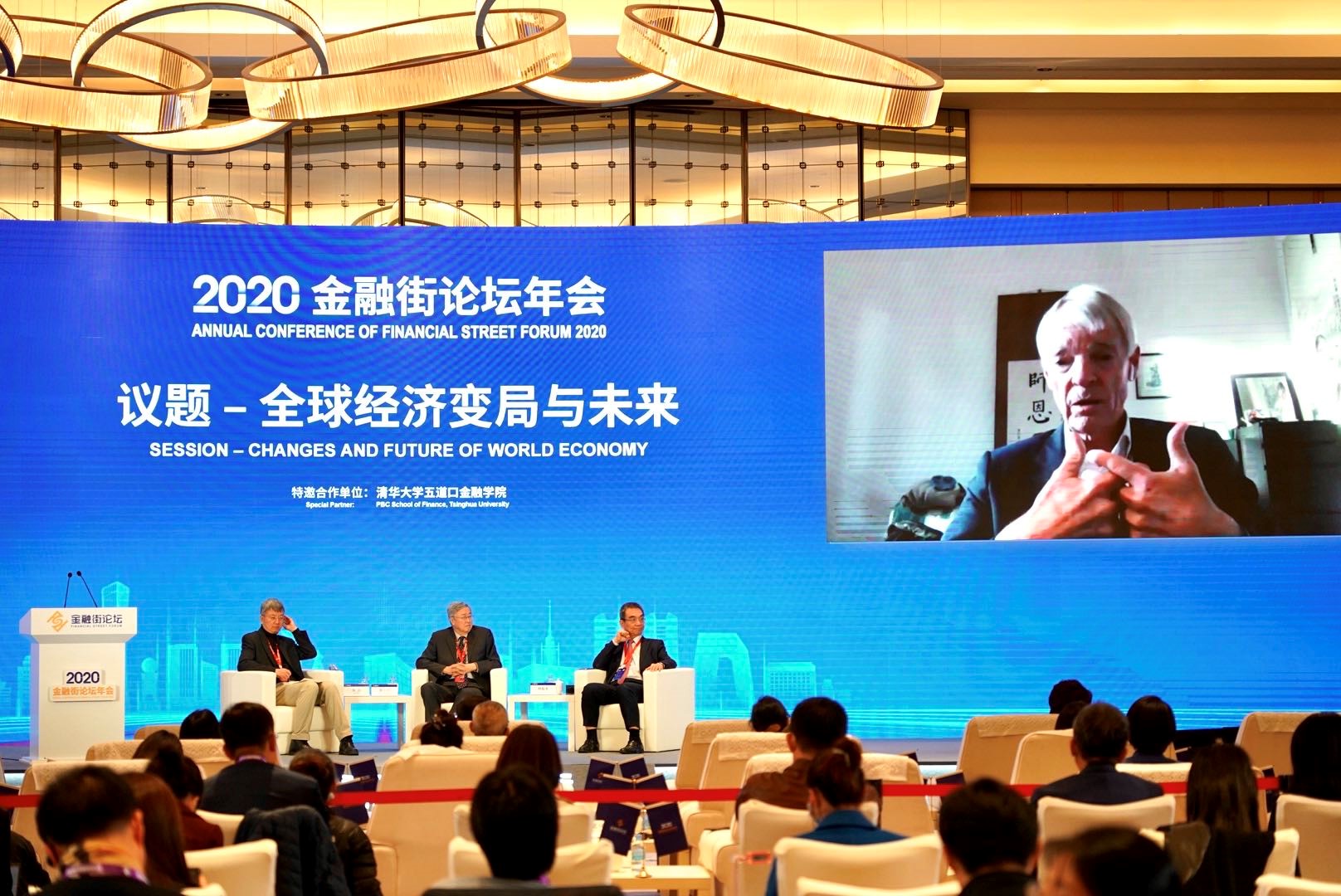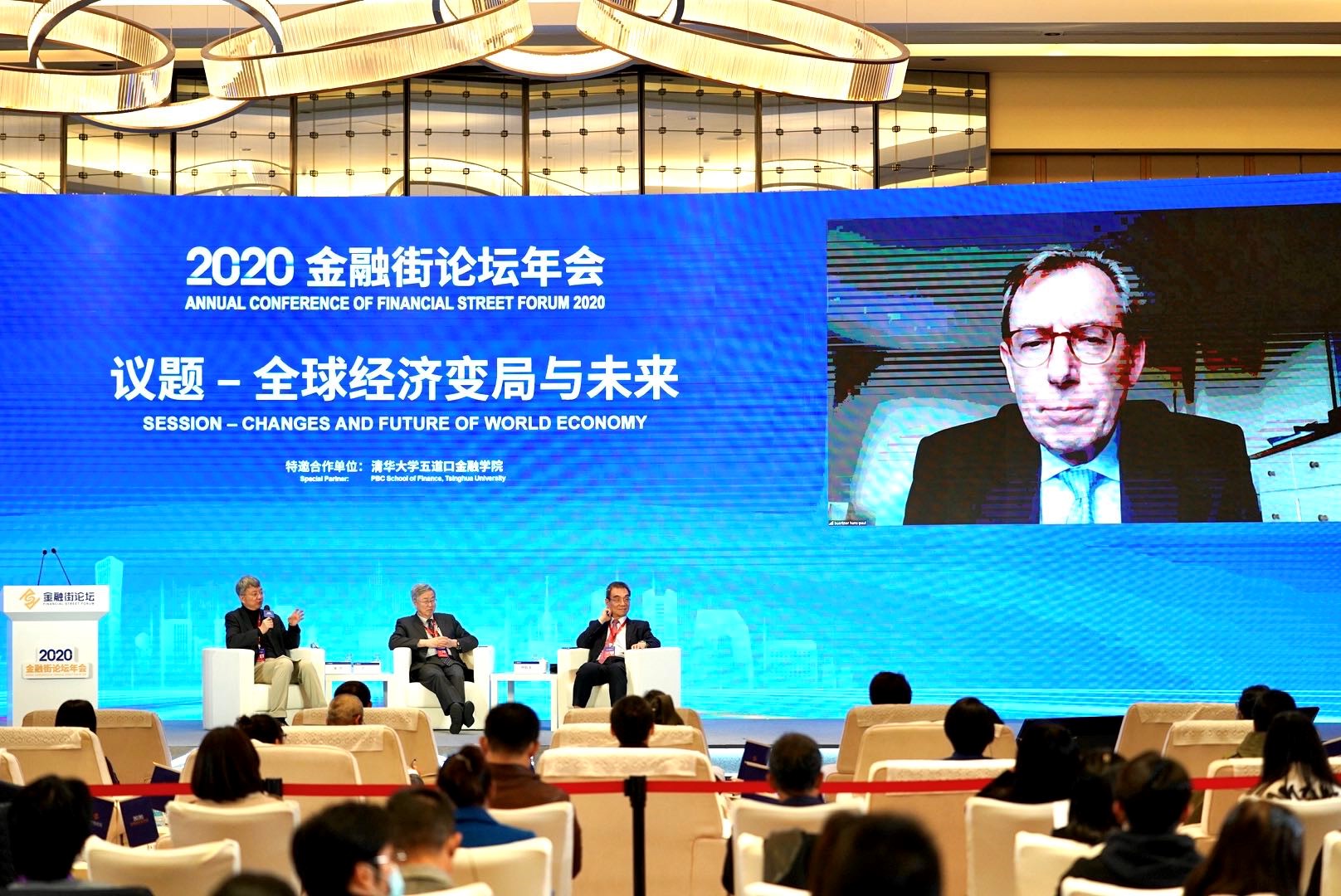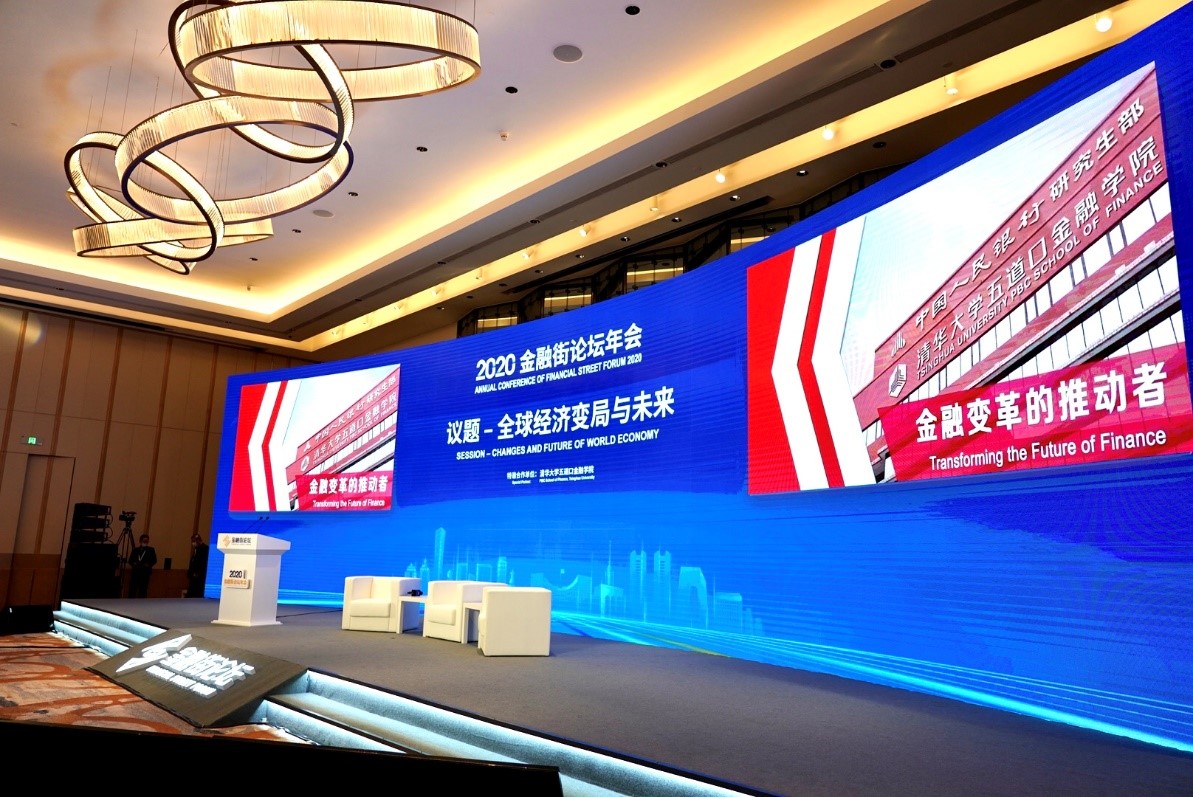Tsinghua University PBC School of Finance (PBCSF) successfully held the “Changes and Future of the Global Economy” session during the Annual Conference of Financial Street Forum 2020 organized in Beijing from October 21 to 23.
Tsinghua PBCSF was the only academic support unit of the three-day forum, an annual high-level event that brings top experts from around the world together to deliberate on China’s financial reforms and development, and the global economy.

Mr. Zhou Xiaochuan
In his speech, Zhou Xiaochuan, Vice Chairman of the Boao Forum for Asia, President of the China Society for Finance and Banking, and Honorary Dean of PBCSF, pointed out that it is not appropriate to focus only on the trend of price and indexes. Zhou believed that the following factors may facilitate the globalization of the RMB in the future: firstly, against rising protectionism, China resolutely sticks to the path of opening up its real economy to the global market; secondly, the Chinese financial market has gradually removed barriers and eliminated protectionist practices, as demonstrated by the induction of Shanghai-Hong Kong Stock Connect, Shenzhen-Hong Kong Stock Connect and Bond Connect in the financial market, and deepening of the globalization of the bond and derivatives markets; thirdly, China has already broken through a mental set of rate seven as the threshold of CNY versus the US dollar.
Zhou indicated that the convertibility of capital accounts doesn’t mean full liberalization. He said China needed to further set up contingency measures, and in the light of objectives, do more research and policy design to promote high-geared opening-up initiatives and high-quality open economies.

Mr. Justin Yifu Lin
Justin Yifu Lin, Professor and Dean of the Institute of New Structural Economics at Peking University, Dean of the Institute of South-South Cooperation and Development of Peking University and Honorable Dean of the National School of Development of Peking University, shared his insights into this new development pattern in the session.
Lin believed that recognizing the fact that “the domestic economic cycle plays a leading role” not only helps relieve concerns about the external environment and enhances China’s confidence, but also is conducive to changing the opinions held by countries that China’s export orientation leads to imbalance. Lin said that there are many uncertainties facing the transition of the global economy. But under the new development system, China’s economy will definitely navigate steadily in the transition, and still have the potential to grow at 8% minimum.

Mr. Michael Spence
Michael Spence, 2001 Nobel Prize Laureate in Economic Sciences, attended the session online. He expressed his opinions in three aspects: global economic development and its defining factors in the post-pandemic era, the role of China in the recovery of the global economy, and the influence of the accelerated development of digital technologies. He believed that in the course of recovery, countries are obviously differentiated, and problems of sovereign debts have emerged. He also said that China is playing a key role in the global recovery process, rebounding earlier and quicker than other economies, and will continue to play a critical role the way ahead.

Mr. Hans-Paul Bürkner
Hans-Paul Bürkner, Chairman of the Boston Consulting Group, also attended the session online. He said that Europe, China and North America are three important driving factors of the world economy. And global recovery calls for cooperation among these three parties. In addition, the re-structuring of an international system based on rules is very essential to the stable development of global supply chain. Moreover, Mr Bürkner pointed out that governments are expected to stimulate the economy through their policies in the next two years to protect competitive businesses, and should reduce budget deficits from 2022 onwards.
During the following discussion, the guests further exchanged their ideas on matters such as the internationalization of the RMB and the opening of capital accounts.
Zhu Min, Chair of the Tsinghua University National Institute of Financial Research and former Deputy Managing Director of the International Monetary Fund, moderated the session. Yin Yong, Vice Mayor of the People’s Government of the Beijing Municipality, and Zhang Xiaohui, Dean of Tsinghua PBCSF were also among the attendees.

With the theme of “Financial Cooperation and Reform under Global Changes”, the Annual Conference of the Financial Street Forum 2020 was jointly organized by the People’s Government of the Beijing Municipality, the People’s Bank of China, Xinhua News Agency, the China Banking and Insurance Regulatory Commission, the China Securities Regulatory Commission and the State Administration of Foreign Exchanges.
Source: Tsinghua PBCSF
Editors: Guo Lili, Sangeet Sangroula



